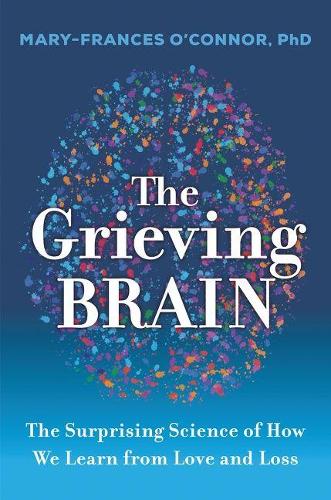
The Grieving Brain: The Surprising Science of How We Learn from Love and Loss
(Paperback)
Available Formats
Publishing Details
The Grieving Brain: The Surprising Science of How We Learn from Love and Loss
By (Author) Mary-Frances O'Connor
HarperCollins Publishers Inc
HarperCollins
8th April 2022
United States
Classifications
General
Non Fiction
Coping with / advice about death and bereavement
Relationships and families: advice, topics and issues
Physical Properties
Paperback
256
Width 153mm, Height 228mm, Spine 18mm
308g
Description
A renowned grief expert and neuroscientist shares groundbreaking discoveries about what happens in our brain when we grieve, providing a new paradigm for understanding love, loss, and learning.
For as long as humans have existed, we have struggled when a loved one dies. Poets and playwrights have written about the dark cloak of grief, the deep yearning, how devastating heartache feels. But until now, we have had little scientific perspective on this universal experience.
InThe Grieving Brain, neuroscientist and psychologist Mary-Frances OConnor,PhD, gives us a fascinating new window into one of the hallmark experiences of being human. OConnor has devoted decades to researching the effects of grief on the brain, and in this book, she makes cutting-edge neuroscience accessiblethrough her contagious enthusiasm,and guides us through how weencodelove and grief. With love, our neurons help us form attachments to others; but, with loss, ourbrain must come to terms withwhere our loved ones went, or how to imagine a futurethat encompasses their absence.
Based on OConnors own trailblazing neuroimaging work, research in the field, and her real-life stories,The Grieving Braindoes what the best popular science books do, combining storytelling, accessible science, and practical knowledge that will help us better understand what happens when we grieve and how to navigate loss with more ease and grace.
Author Bio
MARY-FRANCES O'CONNOR, PhD is an associate professor of psychology at the University of Arizona, where she directs the Grief, Loss and Social Stress (GLASS) Lab, which investigates the effects of grief on the brain and the body. O'Connor received her BA in psychology from Northwestern University in 1996, and went on to earn a PhD in clinical psychology from the University of Arizona in 2004. She completed clinical training at the formerly named UCLA Neuropsychiatric Institute and Hospital and has worked in clinical settings from Arizona State Prison to the Revlon UCLA Breast Center. Soon after, she completed a post-doctoral fellowship in psychoneuroimmunology at the UCLA Semel Institute for Neuroscience and Human Behavior. She then joined the faculty at UCLA before moving to the psychology department at the University of Arizona in 2012. She lives in Tucson, Arizona.
